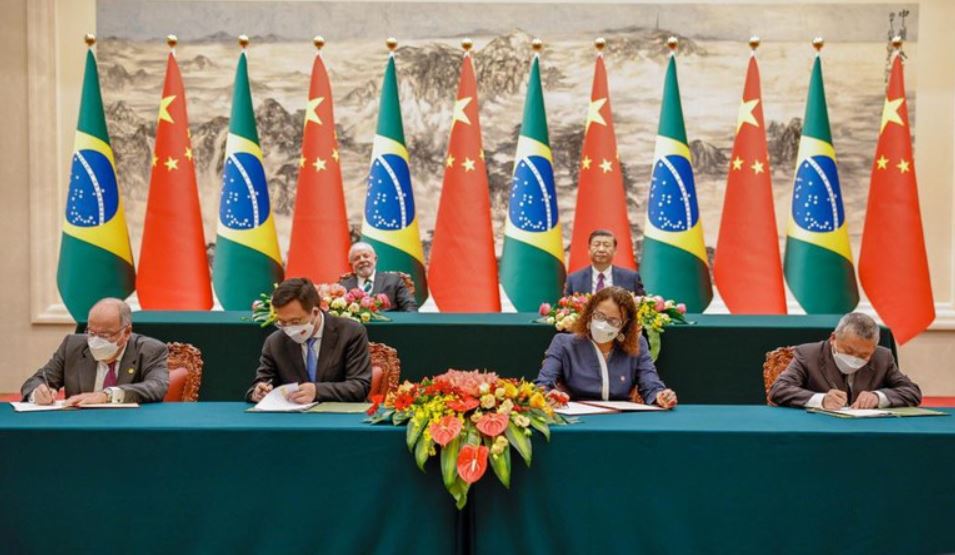
Published 15/04/2023 10:00 | Edited 4/17/2023 3:07 PM
The governments of Brazil and China signed this Friday (14th) 15 cooperation agreements, among which will make it possible to develop, manufacture, launch and operate a satellite to improve monitoring of the Amazon.
It is the Sino Brasileiro Satellite for Terrestrial Resources – CBERS-6, which has a new technology: the Synthetic Aperture Radar (SAR). The biggest benefit of SAR technology is the generation of data in all weather conditions and through clouds.
According to the Minister of Science, Technology and Innovation, Luciana Santos, who signed the protocol for the Brazilian government, the new equipment will improve monitoring of the Amazon.
Read more: Satellite images can be used to punish deforesters in the Amazon
The satellite will complement the data provided by remote sensing satellites in operation (CBERS-4, CBERS-4A and Amazonia-1).
“It is a common technology development. With the Chinese, we will develop a new remote sensing technology, in addition to optical sensors, with more accurate images of climate situations, especially in the Amazon, which will allow us to see through the clouds”, explained the minister.
“This new technology has an impact not only on climate issues, but also on areas such as urban development and agricultural production”, he added.
The estimate is that the CBERS-6 will be built and enter orbit within 42 months after the signing of the agreement, which depends on ratification by the National Congress.
The cost of developing, manufacturing and launching the new satellite is US$ 51 million for each part. Resources come from the National Fund for Scientific and Technological Development (FNDCT).
Luciana Santos evaluated that the visit of President Lula’s entourage establishes another level of relations between Brazil and China, with the disposition to make an increasingly accentuated cooperation policy.
“Brazil is reinserting itself into the world scenario of opportunities, with a culture of peace and with an agenda that defends national interests”, said the minister.
With information from the Ministry of Science, Technology and Innovation
Source: vermelho.org.br

